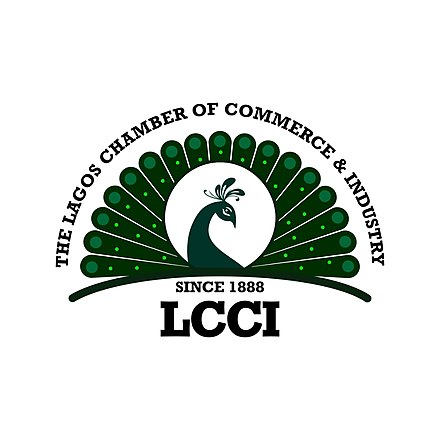2025 economic outlook: LCCI optimistic amid challenges, calls for strategic reforms to drive growth

Lagos Chamber of Commerce & Industry LCCI
Below is the LCCI’s New Year statement on the economy
The Lagos Chamber of Commerce & Industry (LCCI), the voice of businesses in Nigeria, extends New Year greetings to all Nigerians, the Federal Government, and stakeholders in the private and public sectors.
In a statement, the LCCI acknowledged and commended the resilience and tenacity of the Nigerian people and business community in navigating the economic challenges of the past year.
The Nigerian economy experienced a tumultuous period marked by persistent rising prices, burdening interest rates, high cost of production, low demand, and an uncertain macroeconomic policy direction. It stands at a critical juncture, presenting hope for possible transformative growth, which requires decisive and strategic policy actions to address lingering challenges.
The Chamber, in 2024, considered various issues as they emerged, looking at how these issues affected the business community and made very useful and practical recommendations for having a thriving and enabling business environment. In this statement, the Chamber is reviewing 2024 and projecting an outlook for 2025.
Global economy
As we enter 2025, the global economy is poised at a crossroads, grappling with uncertainties while uncovering new opportunities. Key developments, such as the inauguration of a new U.S. administration under Donald Trump, bring both promises and challenges. The composition of his incoming cabinet and the policies proposed for his tenure have already ignited widespread discourse about their potential global impact. Markets worldwide will likely navigate a recalibration phase as businesses and governments adapt to shifts in international trade, energy strategies, and geopolitical alliances.
Amid this backdrop, the need for global collaboration and innovation has never been more critical. As economies recover from previous downturns and adjust to emerging disruptions, fostering resilience and sustainability becomes paramount. Policymakers and industry leaders must address pressing issues like the debt crisis, climate change, technological transformation, and social equity with bold and actionable strategies. The dynamic interplay of these factors will undoubtedly shape the trajectory of global economic health and set the stage for long-term growth.
Domestic economy
Nigeria’s economic landscape continues to be shaped by a confluence of challenges that impact major indicators. Key among these are the persistently high inflation rates driven by escalating costs of goods and services and the ongoing implementation of tight monetary policies to stabilize prices. The nation grapples with an unstable currency compounded by foreign exchange scarcity, which creates uncertainties for businesses and investors.
The removal of subsidies on fuel has resulted in a significant spike in inflation. As a result, petrol prices surged from N198 to an astonishing N1,030 in just 18 months. Since the removal, inflation has increased from 22.79% in June 2023 to 34.60% in November 2024. Because fuel is integral to every facet of life, subsidy removal has been a major driver of high food prices, transportation, energy costs, and, generally, the cost of living. Available data from the NBS showed that food inflation at 39.93% in November 2024 was significantly higher than 24.82% before the subsidy removal. Also, core inflation increased to 28.75% in November 2024 from 19.83% in May 2023.
Monetary policy developments
In 2024, Nigeria’s economy faced persistent challenges marked by inflationary pressures, exchange rate volatility, and subdued economic growth, influenced by tight monetary policies implemented by the Central Bank of Nigeria (CBN) to curb inflation. Inflation hovered at 34.60%, driven by food price surges and energy costs following subsidy removal. The CBN maintained a hawkish stance, with the Monetary Policy Rate (MPR) peaking at 27.50% to tame inflation, stabilize the naira, and attract foreign investments. Despite these measures, GDP growth remained modest at an estimated 3.46%, hindered by structural inefficiencies and insecurity.
Looking ahead to 2025, prospects hinge on sustained fiscal reforms, exchange rate stabilization, and enhanced monetary policy coordination to foster growth, with inflation projected in the 2025 budget to decelerate to 15% as policy impacts crystallize. Prioritizing diversification, investment in critical sectors, and policy consistency will be essential to achieving the government’s medium-term economic recovery objectives.
Economic growth
In 2024, Nigeria’s economic growth remained modest, with GDP expanding at an estimated 3.46%, reflecting the lingering impact of structural challenges, insecurity, and global economic headwinds. Key growthdrivers included the non-oil sector, particularly telecommunications, agriculture, and services, while oil production recovery was hampered by theft and underinvestment. Fiscal reforms, including subsidy removal and tax efficiency measures, supported revenue but added to inflationary pressures. Looking ahead to 2025, the outlook appears cautiously optimistic, with GDP growth projected to accelerate upward, contingent on sustained policy reforms, improved oil sector output, and investments in infrastructure. Enhanced public-private partnerships and efforts to bolster economic diversification remain pivotal to achieving inclusive and sustainable growth.
Agriculture sector
In 2024, Nigeria’s agricultural sector recorded steady growth, contributing at its peak of 28.65% to the nation’s GDP, driven by increased production in crops such as maize, rice, and cassava, as well as sustained investment in mechanization and technology adoption. However, growth was constrained by challenges such as insecurity in key farming regions, high input costs, and limited access to credit for smallholder farmers. Inflationary pressures also impacted on the affordability of essential inputs, while climate variability affected yields.
For 2025, the outlook is cautiously optimistic, with the sector expected to grow tremendously, supported by government initiatives to enhance food security, improve rural infrastructure, and expand agricultural value chains. Strengthening climate resilience and ensuring access to affordable financing will be crucial to unlocking the sector’s full potential and ensuring its pivotal role in Nigeria’s economic diversification agenda.
Manufacturing
In 2024, Nigeria’s manufacturing sector experienced sluggish growth, contributing approximately 8.9% to GDP, as it faced significant headwinds, including high production costs driven by inflation, foreign exchange volatility, and energy shortages. The removal of fuel subsidies and persistent power supply challenges further strained the sector, limiting output and increasing the cost of locally produced goods. Access to foreign exchange for importing raw materials remained constrained, exacerbating supply chain disruptions. Several multinational companies exited the Nigerian market. Despite these challenges, specific sub-sectors like food processing and textiles showed resilience, supported by domestic demand.
Looking ahead to 2025, the manufacturing sector is projected to grow moderately, driven by anticipated improvements in infrastructure, enhanced access to foreign exchange, and government policies aimed at promoting local production and reducing reliance on imports. Addressing structural bottlenecks, fostering innovation, and expanding public-private partnerships will be critical for unlocking the sector’s growth potential.
Construction and real estate sector
In 2024, Nigeria’s construction and real estate sectors contributed 3.35% and 5.43% to Nigeria’s GDP, respectively, reflecting steady activity driven by urbanization, housing demand, and infrastructure development initiatives. However, the sector faced considerable challenges, including escalating costs of building materials due to inflation and foreign exchange volatility, as well as high interest rates that constrained access to financing for developers and buyers. Delays in government-funded infrastructure projects also impacted growth, while insecurity in certain regions further limited construction activities.
Looking at 2025, the sector’s growth will be high on average, supported by anticipated improvements in macroeconomic stability, increased private sector participation, and expanded public infrastructure projects. Addressing financing barriers, enhancing regulatory frameworks, and incentivizing affordable housing projects will be critical for unlocking the sector’s full potential and meeting Nigeria’s growing housing and infrastructure needs. Implementing the recently launched N250bn Ministry of Finance Incorporated (MOFI) Real Estate Investment Fund (MREIF) is seen as increasing housing opportunities and revving activities in this job-rich sector.
Public debt
In 2024, Nigeria’s public debt reached an estimated N134.3 trillion ($91.3 billion), second quarter a 10.35% increase from the first quarter. driven by persistent budget deficits, rising debt servicing costs, and new borrowings to finance critical infrastructure projects. Debt servicing consumed nearly 162% of government revenues, leaving limited fiscal space for developmental expenditures. The removal of fuel subsidies and exchange rate unification compounded fiscal challenges, increasing the cost of external debt repayments due to naira depreciation. Despite these pressures, reforms aimed at enhancing revenue generation, such as improved tax administration through the new tax reform bill underway and the expansion of non-oil revenue streams, provided some relief.
In 2025, public debt is projected to grow modestly, necessitating a delicate balance between borrowing for growth and maintaining debt sustainability. Implementing fiscal discipline, diversifying revenue sources, and attracting private investments through public-private partnerships will be critical to managing debt while fostering economic development.
Capital Importation and FDIs
Nigeria’s total capital inflows in Q2 2024 stood at $2.6 billion compared to $3.38 billion in the previous quarter and $1.03 billion in Q2 2023. This represents a year-on-year growth of 152.8% and a decline of 22.85% when compared to Q1 2024. Foreign Direct Investment at $29.83 million in Q2 2024 implies a decrease of 65.3% compared to $86.03 million in the second quarter of last year and a decrease of 74.97% compared to $119.18 million in the first quarter of 2024. Regarding the contribution to total investment inflows, FDI contributed 1.2% of the total in Q2 2024, while portfolio investments dominated the inflows at $1.40 billion or 53.9% of the total. The performance of FDIs indicates that we need to do more to improve our business environment to attract more foreign investments, especially in power (and in renewable and CNG projects), oil and gas, and telecommunications sectors.
Conclusion
Looking ahead to 2025, cautious optimism prevails as GDP growth is projected at 3.2% by the IMF, driven by ongoing reforms and more substantial contributions from the oil and non-oil sectors. Inflation is expected to ease as monetary policies take effect, with trade, agriculture, and manufacturing poised to drive job creation—vital for addressing unemployment and poverty. Closing infrastructure gaps remain a top priority, necessitating innovative funding models and enhanced public-private partnerships. The 2025 Appropriation Bill proposes an expenditure of ₦49.7 trillion, significantly higher than the ₦28.8 trillion in 2024, with key increases in Defence & Security and Social Services. While ambitious, the budget assumptions demand bold government action to achieve targets.
The LCCI urges the Federal Government to prioritize the following key areas to unlock sustainable economic growth and improve the well-being of Nigerians in the year ahead:
1. Addressing Inflation and Promoting Price Stability
2. Ensuring Fiscal Sustainability and Debt Management
3. Improving the Ease of Doing Business
4. Tackling Unemployment and Empowering Youths
5. Enhancing Food and Energy Security
6. Advancing Trade and Investment
Businesses must embrace innovation, digital transformation, and sustainability as growth strategies, while collaboration between the private and public sectors is critical to overcoming challenges and attracting investment. We need investments in the telecoms sector to drive the desired digital revolution, oil and gas investments to boost crude production levels, and the power sector to enhance power generation to support economic activities. We expect to see some ease in fuel prices in the first quarter as the price wars continue and a possible easing in interest rates in the second quarter of 2025.
Mr. Gabriel Idahosa, FCA
President
Lagos Chamber of Commerce and Industry (LCCI)




